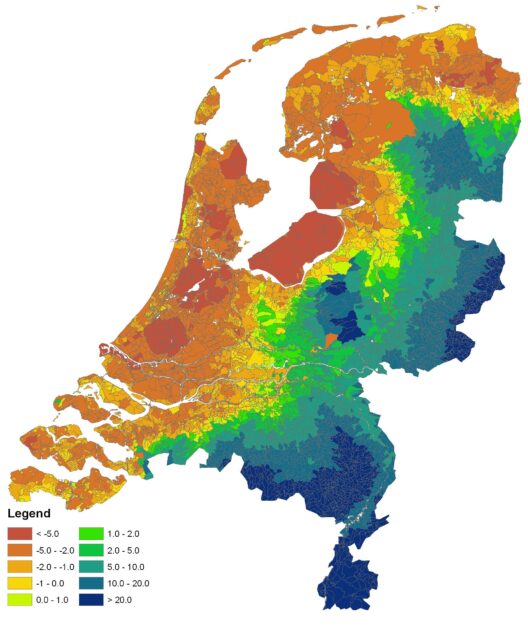In our fast-paced world, the incessant demands on our mental faculties can lead to exhaustion and burnout. Consequently, conserving mental energy has become paramount in enhancing both personal productivity and overall well-being. This article delves into practical strategies and profound insights to help individuals maintain focus and cultivate a stress-free mindset. By adopting a holistic approach to mental conservation, one can find clarity amid the chaos of modern life.
The journey to conserving mental energy begins with an understanding of our cognitive limitations. The human brain, despite its remarkable capabilities, can only process a finite amount of information and make a limited number of decisions before fatigue sets in. This phenomenon, known as decision fatigue, can lead to a decline in the quality of our choices over time. To combat this, one must develop a routine that minimizes unnecessary decisions and streamlines daily processes.
Establishing a structured framework for daily activities can significantly alleviate cognitive load. This can be achieved through meticulous planning and prioritization. Consider a weekly schedule that delineates tasks, appointments, and personal commitments. By visualizing your week in advance, you can allocate mental resources more efficiently and avoid the anxiety of last-minute obligations. Prioritizing tasks using the Eisenhower Matrix — distinguishing between what is urgent and important — further refines focus, allowing the brain to conserve energy for high-priority activities.
Additionally, the practice of mindfulness cannot be overstated in energy conservation. Mindfulness is the art of being present and fully engaged in the moment, devoid of distractions and judgment. Engaging in mindfulness practices such as meditation, deep-breathing exercises, or yoga can dramatically improve mental acuity and reduce stress levels. Even a simple five-minute meditation can awaken the mind and restore focus, providing a refreshing reboot amidst a day’s demands.
Moreover, cultivating a conducive work environment plays a crucial role in mental energy conservation. The physical space in which one operates influences cognitive performance. A cluttered environment can lead to a disorganized mind; therefore, regular decluttering is essential. Organizing workspaces, minimizing distractions, and ensuring natural lighting can elevate one’s mood and productivity. Plants and greenery have also been shown to enhance cognitive function and psychological well-being. Incorporating these elements into your workspace not only creates a more inviting atmosphere but also nurtures mental clarity.
The impact of technology on mental energy is another critical aspect to consider. In an era dominated by screens and constant notifications, digital distractions can drain cognitive resources swiftly. Implementing strategies such as screen time limits can lead to enhanced concentration and reduced feelings of overwhelm. Consider utilizing applications that block distracting websites or create designated “phone-free” times during your day. Embracing technology mindfully allows one to leverage its benefits without succumbing to its pitfalls.
Time management techniques, such as the Pomodoro Technique, can further aid in conserving mental energy. This method encourages focused bursts of work followed by short breaks. By segmenting work into manageable intervals — typically 25 minutes of concentrated effort followed by a 5-minute respite — individuals can maintain peak mental performance without succumbing to fatigue. These intentional breaks serve as mental refreshers, preventing burnout and maximizing productivity.
Social engagements and relationships are pivotal in our lives, yet they also demand significant mental energy. As such, being mindful of social interactions can lead to healthier relationships and reduced stress. It is essential to cultivate a social circle that uplifts and energizes rather than drains. Building boundaries concerning time and emotional investment can help in conserving mental faculties. Engaging with individuals who inspire and motivate us fosters an environment of positivity, thereby enhancing mental clarity and focus.
Physical well-being is inextricably linked to mental energy conservation. Regular exercise, proper nutrition, and adequate sleep are vital components that underpin cognitive health. Activities such as walking, jogging, or practicing martial arts can stimulate the release of endorphins—natural mood lifters that promote motivation and focus. Harmonizing one’s diet with brain-nourishing foods, such as omega-3 fatty acids found in fish, can also improve cognitive function. Furthermore, prioritizing quality sleep enables the brain to rejuvenate, consolidating memories and improving alertness.
Finally, embracing a growth mindset can transform how one approaches challenges and setbacks. A growth mindset encourages resilience and adaptability, fostering a perspective that views difficulties as opportunities for learning. This cognitive shift not only conserves mental energy but also nurtures a more optimistic outlook on life’s various challenges. When individuals believe in their capacity for growth, they are less likely to dwell on failures, allowing them to redirect energy towards constructive efforts.
In summation, conserving mental energy is a multifaceted endeavor that encompasses strategic planning, mindful living, and holistic well-being. By recognizing the limitations of our cognitive resources and implementing effective strategies, individuals can enhance their focus and maintain a sense of tranquility amid life’s complexities. Ultimately, adopting these practices heralds a transformative shift in perspective, paving the way for a more fulfilling and stress-free existence.








